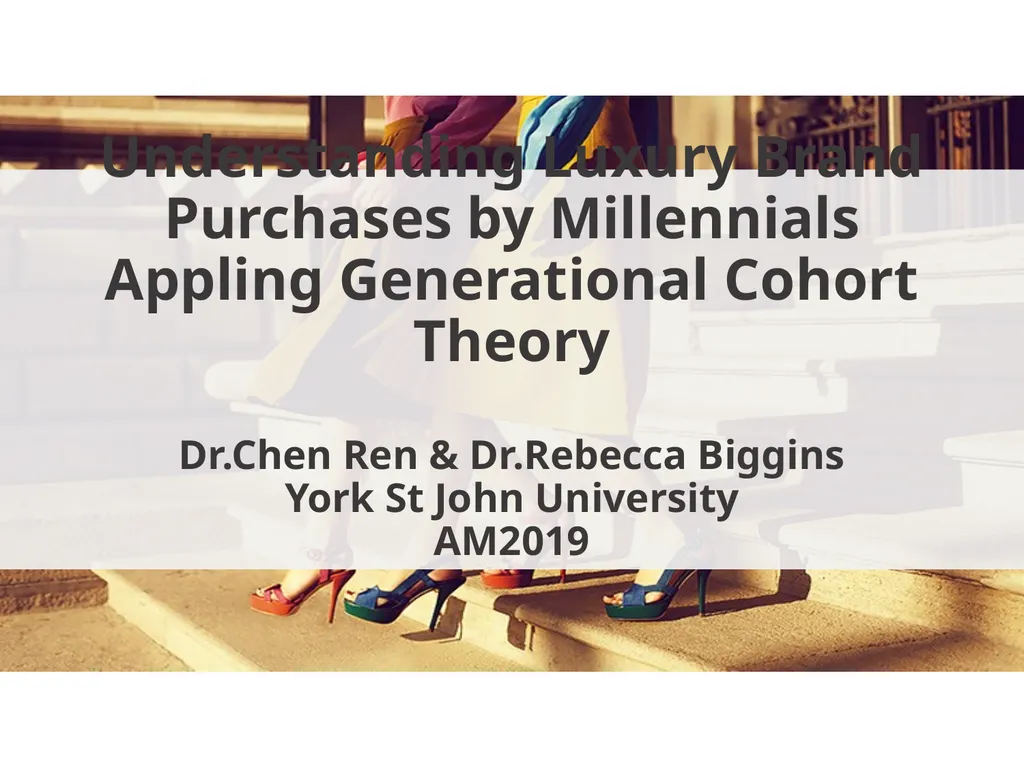
Author : myesha-ticknor | Published Date : 2025-05-22
Description: Understanding Luxury Brand Purchases by Millennials Appling Generational Cohort Theory Dr.Chen Ren Dr.Rebecca Biggins York St John University AM2019 Research Background Key Literature Methodology Initial Findings Discussion FinancialDownload Presentation The PPT/PDF document "" is the property of its rightful owner. Permission is granted to download and print the materials on this website for personal, non-commercial use only, and to display it on your personal computer provided you do not modify the materials and that you retain all copyright notices contained in the materials. By downloading content from our website, you accept the terms of this agreement.
Here is the link to download the presentation.
"Understanding Luxury Brand Purchases by"The content belongs to its owner. You may download and print it for personal use, without modification, and keep all copyright notices. By downloading, you agree to these terms.













